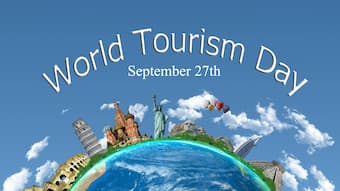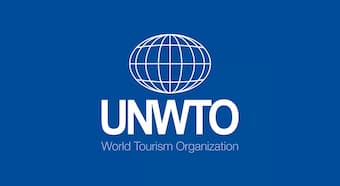
World Tourism Day
World Tourism Day was the brainchild of Ignatius Amaduwa Atigbi. The Nigerian national proposed to celebrate this special day on 27 September, and the World Tourist Organization of the United Nations adopted the resolution in 1970. Ever since 1980, the UNWTO has celebrated World Tourism Day as international observances on 27 September. “Around the world, in countries at all development levels,” according to the UNWTO Secretary-General, “many millions of jobs and businesses are dependent on a strong and thriving tourism sector. Tourism has also been a driving force in protecting natural and cultural heritage, preserving them for future generations to enjoy.” In essence, the purpose of this day is to raise awareness of the role of tourism within the international community, and to demonstrate how it affects social, cultural, political and economic values worldwide. In 1997, the General Assembly decided to designate a host country each year to act as the Organization’s partner in celebrating World Tourism Day.
Alexandre Tansman: Le tour du monde en miniature

The World Tourism Organization
Besides selecting host countries to help in the organization of World Tourism celebrations, each year focuses on a specific theme. 2017 was placed under the umbrella of “Sustainable Tourism,” 2018 addressed “Tourism and the Digital Transformation,” 2019 probed “Tourism and Jobs: A better future for all,” and in 2020 the theme was “Tourism and Rural Development.” For World Tourism Day 2021 the UNWTO will focus on “Tourism for Inclusive Growth.” The official statement relates, “The COVID-19 pandemic has had a massive social and economic impact. Both developed and developing economies have been hit. And marginalized groups and the most vulnerable have been hit hardest of all. The restart of tourism will help kick start recovery and growth. It is essential that the benefits this will bring are enjoyed widely and fairly.” The impact of COVID-19 on tourism will cost the world economy 4 trillion dollars. Developing countries will be among the most affected ones, and global vaccination is seen as a crucial element for recovery.
Felix Mendelssohn: Symphony No. 4 in A Major, Op. 90 “Italian” (Tonkünstler Orchestra; Andrés Orozco-Estrada, cond.)

Second from left, Late Ignatius Amaduwa Atigbi initiator of World Tourism Day
Without doubt, COVID-19 has been the biggest crisis in the history of tourism. This crisis is continuing into a second year, and between January and May 2021, international tourist arrivals were 85% below 2019 levels. The emergence of virus variants and the continued imposition of restrictions are not allowing for the recovery of international travel. And while domestic tourism is rebounding in many parts of the world, tourism experts do not expect a return to pre-COVID arrival levels until 2023 or later. Sadly, developing countries have suffered most due to the absence of widespread COVID-19 vaccinations. World Tourism Day 2021 “represents an opportunity to rethink the future of the tourism sector. Tourism has a unique ability to make sure nobody is left behind, as recognized by the Second Principle of the 2030 Agenda for Sustainable Development.”
Camille Saint-Saëns: Africa, Op. 89 (Romain Descharmes, piano; Malmö Symphony Orchestra; Marc Soustrot, cond.)

1889 Universal Exhibition in Paris
The World Tourist Organization of the United Nations is a specialized agency responsible for sustainable tourism, and it is guiding the global sector toward inclusive recovery and growth. The organization ensures that “every part of the sector has a say in its future, including communities, minorities, youth and those who would otherwise be at risk of being left behind.” Sustainable tourism is not a special form of tourism, but all forms of tourism should strive to be more sustainable. That sustainability requires a suitable balance between the environmental, economic and socio-cultural aspects of tourism development. In 2021 and beyond, “tourism needs to better address environmental and social sustainability at the destination level, and better contribute to the sustainable growth agenda.” Tourism has to play an important role in promoting and maintaining indigenous traditions, art, and culture. Economic considerations aside, tourism has to be more than just some pretty pictures. It once again needs to become the fundamental basis for cultural respect and artistic exchange.
For more of the best in classical music, sign up to our E-Newsletter
Claude Debussy: Estampes, “Pagodes” (Pascal Rogé, piano)
